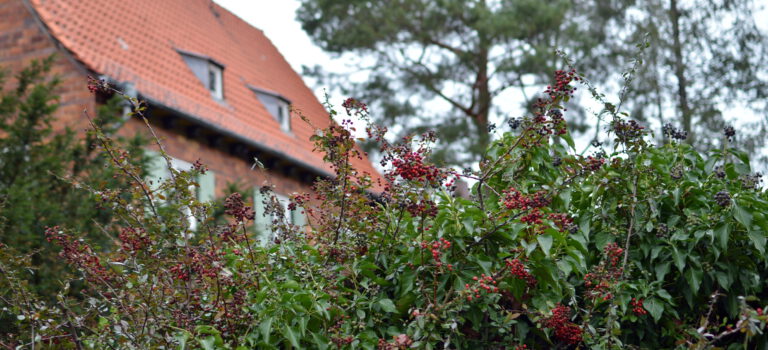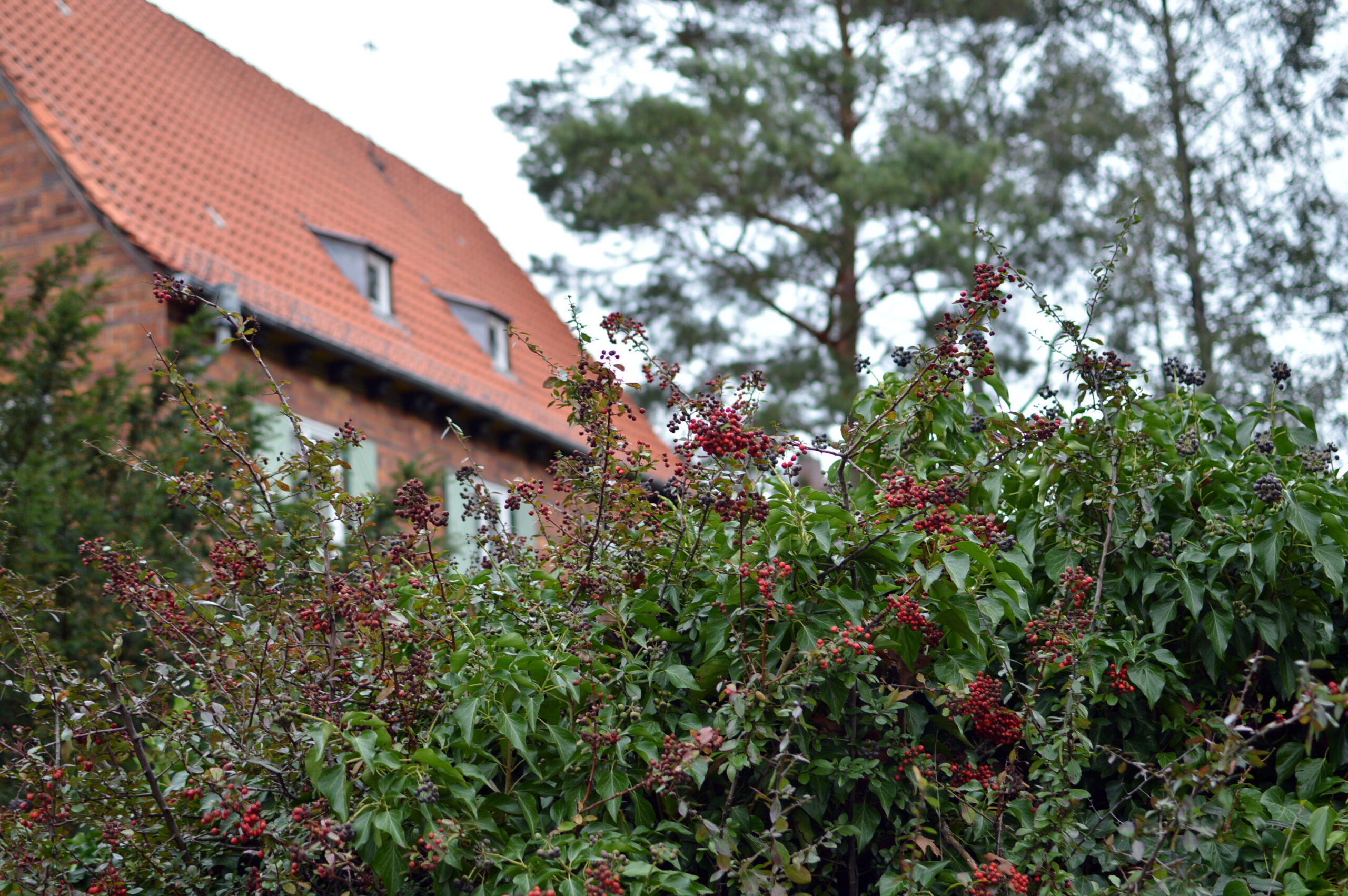Even though it was a cold and grey day, Nelly felt like being on holiday when she entered the little ferry. Ferryman, will thou ferry me over? He did not actually ferry her over to anywhere, she just enjoyd being on the Müggelsee, looking at the shore with all the lovely houses and gardens. She could have gotten of in Neu Helgoland, but the restaurant was closed today. Nearby was Klein Venedig, named for all the little canals between the Kleingärten. The names had made Nelly come for the first time, but she had returned because of the summer-feeling the place had.
At the front of the ferry was a flag of Union Berlin, Eisern Union, the football team, pride of the district, proud of the good hearted well meaning fans, who had cheered when the club was second league and cheered now that it had beaten Bayern München. An Union-scarf framed the cabin of the ferry man. Did he wear it every saturday in the stadion?
The only other passengers were a family of three. The daughter was the cutest little three-year-old, but instead of taking pictures of this fastly growing wonder, the father repeatedly asked his partner to film him in front of the water, the houses, the trees, the boat. They stayed on the ferry to return to their car when Nelly got of at the final stop.
Luckily, the fish-stall was not closed and Nelly bought a fish bullet in a bun. It was tasty and filling and Nelly was glad that she had not entered the cafe earlier. The cake had looked too sweet for her. At least today.
A few steps further on, she came to an old church. She was in the center of a small old village, a dark cross looming over her, reminding her of life´s brevity.
Three adolesents were standing on the road, talking. They looked as if they had been standing there for 50 years and nothing had changed. The house behind them was grey and full of cracks. As if there had neither been the Wende nor any gentrification in Berlin.
Nelly walked on and passed fences and hedges, pottery and flowers, signs to welcome the stranger and signs to avert her.

